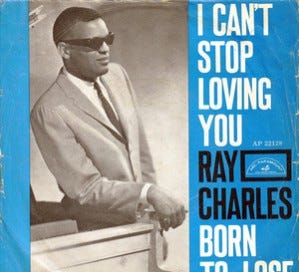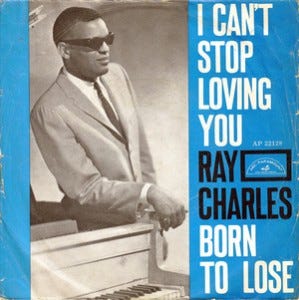The Washington Post — owned by Jeff Bezos — ventured into country music this weekend. It did not go well because if there is one thing DC journalists know less than guns, it is country music.
The Bezos Post reported, “Tracy Chapman, Luke Combs and the complicated response to Fast Car.
“Combs’s remake of Chapman’s 1988 hit now dominates the country charts, renewing difficult conversations about diversity in Nashville.”
Difficult conversations is dog whistle racism by Bezos and his Post — at least according to my cat. I cannot hear dog whistles. The story’s unsubtle message is a country star is not allowed to record a song written by a black woman because, well, just because. How dare you ask!
Combs is a country star who dusted off Fast Car, a song that is two years older than him, and turned it into a hit. This meant a fresh stream of royalties for Chapman, 59. As a writer, I would like to get money for something I wrote in 1988.
Songwriting pays a lot more than song singing, unless you are Frank Sinatra. Back in the day, DJ Alan Freed played Chuck Berry’s Maybellene 17 times in a row and made it a hit. Years later, Chuck found out why. His record company gave Freed a co-writer’s credit and split the royalties with him — a very enterprising form of payola — in order to get that airplay.
Berry eventually sued and got his rights back.
Chapman does not have that problem because she owns the song and she collects what is due her.
The Bezos Post has a big problem with a country star singing Chapman’s song.
The newspaper said, “To quite a few people, this is cause for yet another celebration in Combs’s whirlwind journey as the genre’s reigning megastar with 16 consecutive No. 1 hits. But it has also prompted a wave of complicated feelings among some listeners and in the Nashville music community. Although many are thrilled to see Fast Car back in the spotlight and a new generation discovering Chapman’s work, it’s clouded by the fact that, as a black queer woman, Chapman, 59, would have almost zero chance of that achievement herself in country music.”
So the problem is not that a “black queer woman” is making money off a folk song that was a pop music hit 35 years ago. No, the problem for the Bezos Post is that it is difficult for a “black queer woman” to make it in Nashville.
Guess what? It is hard for anyone to make it in Nashville. That is why the few who do make it live so large.
Dismissing Chapman as a “black queer woman” insults her ability to make it in folk music, a genre with a small audience these days. She is an artist and an individual, not some widget know only by her sex and color.
But the Bezos Post blundered on, reporting, “The numbers are bleak: A recent study by data journalist Jan Diehm and musicologist Jada Watson reported that fewer than 0.5 percent of songs played on country radio in 2022 were by women of color and LGBTQ+ artists. Watson’s previous work shows that songs by women of color and LGBTQ+ artists were largely excluded from radio playlists for most of the two decades prior.”
That’s an amusing piece of trivia. How did Jan Diehm and Jada Watson come up with that number? Did they listen to the thousands of country stations across the nation 24 hours a day? Many country artists have American Indians among their ancestors — and not in a Liz Warren way — so how did Diehm and Watson determine what a woman of color is?
Also missing is what percentage of country songs are by “women of color and LGBTQ+ artists.” If is is 0.5 percent then there is no problem. It is impossible to play music that does not exist.
What is really missing is why Bezos and his newspaper are whizzing over an artist’s success. That the song is a cover of a hit song is a tribute in many ways, including financial. Covers are important to songwriters.
Show Biz Cheat Sheet ran a story, “Paul McCartney’s Kids Told Their Friends He Wrote Live and Let Die, but No One Believed Them.” Their friends insisted Gun ‘N Roses wrote it. Nope. The only thing they wrote were royalty checks to Sir Paul. He happily cashed them.
Ike and Tina Turner’s biggest hit was a cover of Credence Clearwater Revival’s Proud Mary. CCR had a hit out of Motown’s Heard It Through The Grapevine. Real music doesn’t care what your color or your sex are. All that matters is whether the song is good.
Ray Charles’s signature song was I Can’t Stop Lovin’ You, a Nashville song by Don Gibson. He was so good as a songwriter that his Oh Lonesome Me was one of the few covers that Neil Young recorded. Maybe Old Neil Young should have covered Gibson’s Sweet Dreams and avoided that whole Southern Man thing.
The Washington Post had a different take when Ray Charles recorded country songs and had hits on the rhythm and blues charts. WaPo didn’t care that Eddy Arnold and other country artists “would have almost zero chance of that achievement” in R&B.
On December 16, 1998, the newspaper said, “On the liner notes to his 1959 album, What’d I Say, Ray Charles pointed out that as a youngster, he'd played in an otherwise all-white ‘hillbilly band’ called the Florida Playboys, adding that he was sure he ‘could do a good job with the right hillbilly song.’ That same year, he recorded Hank Snow’s I’m Movin’ On, which went to No. 11 on the R&B charts, No. 40 on the pop charts and nowhere on the country charts. At the time, Charles was known primarily as an R&B artist, and in an era when you pretty much had to be country to sing country, his crossover prospects must have seemed minimal at best.
“All that would change in 1962 with the release of Modern Sounds in Country and Western Music, for which Charles took on a decidedly white-bread country repertoire and recast it, as he has so often during his half-century career, as quintessential Ray Charles music. Though it produced no country hits, Modern Sounds became a landmark country album by helping the music gain a mainstream audience, even suggesting to Nashville producers ways to craft their music to reach that wider audience.
“Charles's aching reading of Don Gibson’s I Can’t Stop Loving You topped both the pop and R&B charts and it remains Charles's biggest hit, as well as the centerpiece of The Complete Country & Western Recordings 1959-1986, a new four-CD, 92-track boxed set from Rhino. The set's first disc includes the Modern Sounds album (which topped the pop charts for 11 weeks) and its somewhat less stellar follow-up, Vol. 2 (available for the first time on CD).”
I put Eddy Arnold in the headline because he is better known than Gibson. Also, Arnold co-wrote You Don’t Know Me, which was another hit for Charles on that landmark LP. The album really was the breakthrough that 1998 story said it was because the album showed there is only one race — the human race. We all suffer pain and sorrow. We all enjoy happy moments.
My point is that the Post praised Charles for doing what Combs did. Well not to be Hank Kimball about it, but actually Combs did what Charles did.
This weekend’s story on Fast Car said, “Jake Blount, an Afrofuturist folk artist who has devoted his career to studying music history and reinterpreting older songs, tweeted about the concern of Chapman’s ‘legacy being overwritten in real-time.’ He thought about how Big Mama Thornton’s Hound Dog was consumed by Elvis Presley or how Memphis Minnie and Kansas Joe McCoy’s When the Levee Breaks was overshadowed by Led Zeppelin, along with endless other examples of the white male genius archetype that often receives credit for songs by black artists.”
Big Mama Thornton did not write Hound Dog. Jerry Leiber and Mike Stoller — two white Jewish kids — did. So much for devoting a career to “studying music history and reinterpreting older songs.”
I just listened to the Luke Combs version. I can see why Jeff Bezos and his Post are worried. The cover of this song shows the pain a “black queer woman” suffers is also felt by people in Nashville; they share more than the media realizes, just as people did in Ray Charles’s day. Heaven help DC if the American people become united again instead of diversified.




Buried lede: Ray Charles was color blind
In other news: The National news is breathless reporting that a city named for a mythical bird that bursts into flames is having a summer heat wave